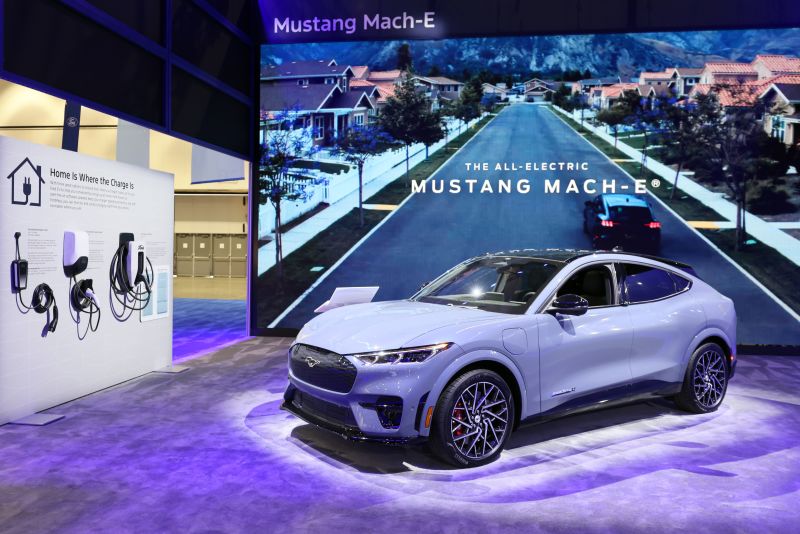
Tesla Plans Significant Workforce Reduction

Reports indicate that Tesla is planning a substantial reduction in its global workforce, with more than 10% of its 140,000 employees expected to be affected by the cuts.
Tesla is said to be reducing its worldwide workforce by over 10%, which currently stands at 140,000 employees.
This decision comes as Tesla has significantly increased its total number of employees since the end of 2020. The company's move to downsize is a response to heightened competition and a decrease in demand within the electric car industry.
An email sent by CEO Elon Musk to staff over the weekend stated that the planned job cuts were necessary for "cost reductions and increasing productivity," as reported by Reuters. The email did not mention the slowdown in demand for electric vehicles or Tesla sales.
In the email to Tesla employees, Musk mentioned that a thorough review of the organization led to the difficult decision to reduce the global headcount by more than 10%. The email was first reported by Electrek, an EV news site, and later by Reuters.
On Monday, Musk took to X to announce that the company needs to reorganize and streamline every 5 years for the next phase of growth. This was in response to reactions regarding recent layoffs and the departure of two high-ranking Tesla executives, Drew Baglino and Rohan Patel.
Tesla recently reported a decline in sales compared to the same period last year, marking its first drop since the peak of the pandemic four years ago. In the fourth quarter, Tesla briefly lost its position as the global leader in EV sales to Chinese automaker BYD. However, Tesla reclaimed the top spot in EV sales in the first quarter, despite the decrease in sales.
The All-Electric Ford Mach-E is displayed during the 2023 Los Angeles Auto Show at the Los Angeles Convention Center on November 24, 2023 in Los Angeles, California.
The All-Electric Ford Mach-E is displayed during the 2023 Los Angeles Auto Show at the Los Angeles Convention Center on November 24, 2023 in Los Angeles, California.
Josh Lefkowitz/Getty Images
Related article
EVs have not met the high expectations placed on them by automakers. General Motors and Ford have also reduced their production of EVs due to lower demand than anticipated. Overall, EV sales are increasing across the industry, but not as quickly as predicted. In the US, EV sales grew by 40% last year, reaching over 1 million units for the first time.
Tesla expanded its operations by opening factories in Germany and Texas in 2022, with plans for a new plant in Mexico announced last year. However, the company's rate of hiring has significantly decreased in recent times.
In 2021, Tesla saw a 40% increase in staff, followed by a 29% increase in 2022. However, company filings show that employee growth slowed to just under 10% in 2023, bringing the global staff count to 140,473 by the end of last year.
Tesla has previously reduced its workforce, with a 7% staff cut announced in 2019 through an online statement. In 2022, the company also trimmed approximately 10% of salaried staff while continuing to hire hourly employees.
Although Elon Musk publicly acknowledged the 2022 staff reductions, neither he nor Tesla have confirmed the latest round of cuts. Tesla, lacking a public relations team, did not respond to requests for comment on the report or confirm the email regarding the recent staff cuts.
Shares of Tesla, which were already down 31% so far this year through Friday’s close, fell another 3% in early trading Monday on the job cut report.
Reuters contributed reporting to this story.
Editor's P/S:
The recent news of Tesla's significant workforce reduction has raised concerns and sparked discussions within the industry. Tesla's decision, reportedly driven by heightened competition and decreased demand, underscores the challenges facing the electric car industry as a whole. While EV sales have grown in recent years, the pace of growth has not met the high expectations of automakers. Additionally, the opening of new factories and a rapid pace of hiring in previous years have contributed to Tesla's current overstaffing situation.
This situation highlights the need for careful planning and a balanced approach to growth within the electric car industry. Automakers must navigate the challenges of increasing competition, fluctuating demand, and the need to streamline operations to remain competitive. It will be interesting to see how Tesla's decision to reduce its workforce and reorganize its operations will impact the company's long-term growth and the overall trajectory of the electric car industry.














